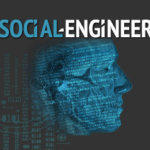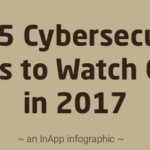No products in the cart.

Dear Readers, today we would like to introduce to you Christopher Hadnagy, Chief Human Hacker and CEO of Social-Engineer, LLC. We have spoken about Social Engineering, predictions for year 2017 in cyber security world and how to get the most out of 5-day training. Enjoy! [eForensics Magazine]: Hello Christopher, how have....
Author
Latest Articles
 BlogJanuary 18, 20172017 Global Fraud and Cybercrime Forecast - Explained Visually by RSA
BlogJanuary 18, 20172017 Global Fraud and Cybercrime Forecast - Explained Visually by RSA BlogJanuary 17, 2017Don’t try to master it all – just try to understand how to NOT be the low hanging fruit - Interview with Christopher Hadnagy, CEO of Social-Engineer, LLC.
BlogJanuary 17, 2017Don’t try to master it all – just try to understand how to NOT be the low hanging fruit - Interview with Christopher Hadnagy, CEO of Social-Engineer, LLC. BlogJanuary 9, 2017Top 5 Cybersecurity Threats to Watch Out for in 2017 - Infographic by InApp
BlogJanuary 9, 2017Top 5 Cybersecurity Threats to Watch Out for in 2017 - Infographic by InApp BlogJanuary 4, 2017Don't underestimate the script kiddies nowadays - Interview with Tal Argoni, Co- Founder of Triad Security
BlogJanuary 4, 2017Don't underestimate the script kiddies nowadays - Interview with Tal Argoni, Co- Founder of Triad Security
Subscribe
Login
0 Comments